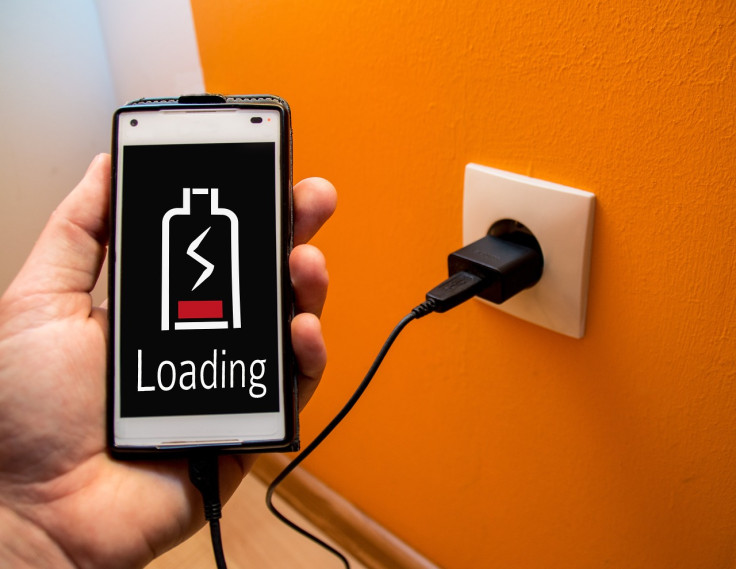FBI warns against using public phone chargers, here's why
Cyber criminals can use public chargers to infect your phone with malware or spyware.

The FBI has issued a scary warning about using public phone-charging stations, explaining why people should avoid them. Individuals usually resort to using charging stations when they are far from home and their mobile phone dies. However, you might want to think twice before using a free, public charging station.
Even if you're using one of the best phones, keeping your battery fully charged can turn out to be an arduous task, especially when you're traveling. So, airports, malls, hotels, and other places have been offering public phone chargers lately. In a new tweet, the FBI's Denver office has warned smartphone owners not to use these public charging stations although most of them are free.
Avoid using free charging stations in airports, hotels or shopping centers. Bad actors have figured out ways to use public USB ports to introduce malware and monitoring software onto devices. Carry your own charger and USB cord and use an electrical outlet instead. pic.twitter.com/9T62SYen9T
— FBI Denver (@FBIDenver) April 6, 2023
Apparently, hackers can use these USB ports to transfer malware or spyware into your phone through public charging stations. This method is known as juice jacking. To those unaware, juice jacking is a cyber-theft tactic. It alludes to the compromise of devices like phones and tablets, which use the same cable, usually a USB cable, for charging or data transfer. This allows cybercriminals to copy the user's sensitive data.
Think twice before using public charging stations. Hackers could be waiting to gain access to your personal information by installing malware and monitoring software to your devices. This scam is referred to as juice jacking. https://t.co/hzLl2ZFTB5#juicejacking
— The FCC (@FCC) April 11, 2023
The FCC (Federal Communications Commission) has previously warned users about the dangers of public USB stations. To recap, the Los Angeles District Attorney issued a similar warning back in 2019. The idea of transferring malware into a user's device via USB wall chargers was first showcased in a demo back in 2013 at the Black Hat cybersecurity conference. The term juice jacking was coined by security expert Brian Krebs in 2011.
How to protect your phone from juice jacking
Use your own charging cable and wall wart even while you are traveling to stay safe from juice jacking. While carrying around your own charger may be a bit of a hassle, it keeps your device safe from malware infections and protects you from identity theft. Alternatively, you can use your own portable charger to ensure your phone doesn't die while on vacation.
Cybercriminals adopt multiple techniques to steal a user's personal information. For instance, the Nexus Android trojan spreads through phishing pages that look like legitimate websites. Likewise, some cyber criminals use ChatGPT-style AI chatbots to craft genuine-looking phishing emails that aren't likely to be caught by spam filters.
Here are some tips to help you avoid becoming a #juicejacking victim:
— The FCC (@FCC) April 11, 2023
✅ Avoid using a USB charging station. Use an AC power outlet instead.
✅ Bring AC, car chargers, and your own USB cables with you when traveling.
Thankfully, there are a few ways to make your phone battery last longer so that you don't have to use a public charging station. For example, you can enable the Battery Saver Mode on an Android phone. You can extend your Pixel 6A or Pixel 7's battery life by turning on the Extreme Battery Saver option. Likewise, iPhone users can enable the Optimised Battery Charging option, or use Low Power Mode to save battery life.
Aside from this, you can search for smartphones with the best phone battery life online if you're shopping for a new phone. This will allow you to figure out which smartphone offers the longest battery life when looking for your next upgrade. With juice jacking on the rise, it is important to know how you can stay safe from this threat.
Other ways to stay safe
You can lock your phone to stop it from pairing with a connected device. While you can switch the phone off before charging it, the USB port may still connect to the device's flash storage. You can disable pairing entirely if you're using a jailbroken iOS device, according to a report by Norton. Other methods to charge your phone includes carrying an external battery, power bank, or a wireless charging station.
Similarly, you can use a USB pass-through device. Although these adapters allow power to flow through, they disable the USB charger's data pin. So, while the device continues to charge, the data won't transfer. The security software company believes a user's best defense against juice jacking is understanding the risks.
© Copyright IBTimes 2025. All rights reserved.






















